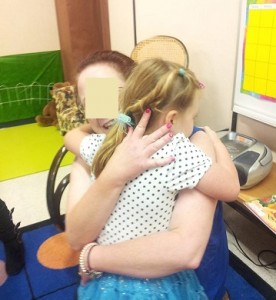At this time of year, with the start of school fresh in our minds, parents and caregivers of toddlers are concerned with the issue of kindergarten readiness. Many would like to know what factors will most influence kindergarten readiness. Just recently, Audrey Breen summarized some important research for an article in UVA Today. The results may take off some pressure.
The purpose of preschool programs is to support learning and to promote readiness for kindergarten. In this study, pre-school classrooms (publicly funded ones) were rated as to their quality. Then, the children’s kindergarten readiness was measured. But readiness at higher quality programs was not better than at ones with lower ratings. 
Five factors were used to rate the quality of classrooms. These were: the qualifications of the staff, the number of children in the class, the ratio of children to teachers, the physical set-up, and the qualities of the interactions between the teachers and students. The overall high rating of a classroom did not mean equally high gains in learning.
There was one factor however that did influence children’s development and learning, and that was the quality of the interactions. When a program received a high rating for these interactions, the students were better prepared for school.
When you stop to think about it, this isn’t so surprising. Parents, caregivers, and teachers have a tremendous impact on children’s learning and development. The experiences and opportunities for a child’s early learning are influenced by the adults. A child connects to the world around him or her through the parents. Parents interpret the world for a baby. For example, when a parent says “Oh, look. Here’s your bear. Is your bear fuzzy?” the baby hears that bears are fuzzy. In the same way, teachers are interpreting for students, “The picture on the front of this book gives us some clues about the story.”
Since we all want the best for our kids, the information that quality interactions most influence kindergarten readiness is significant. Parents are children’s first teachers. If the quality of interactions is important at preschool, could that also mean it’s important at home?
